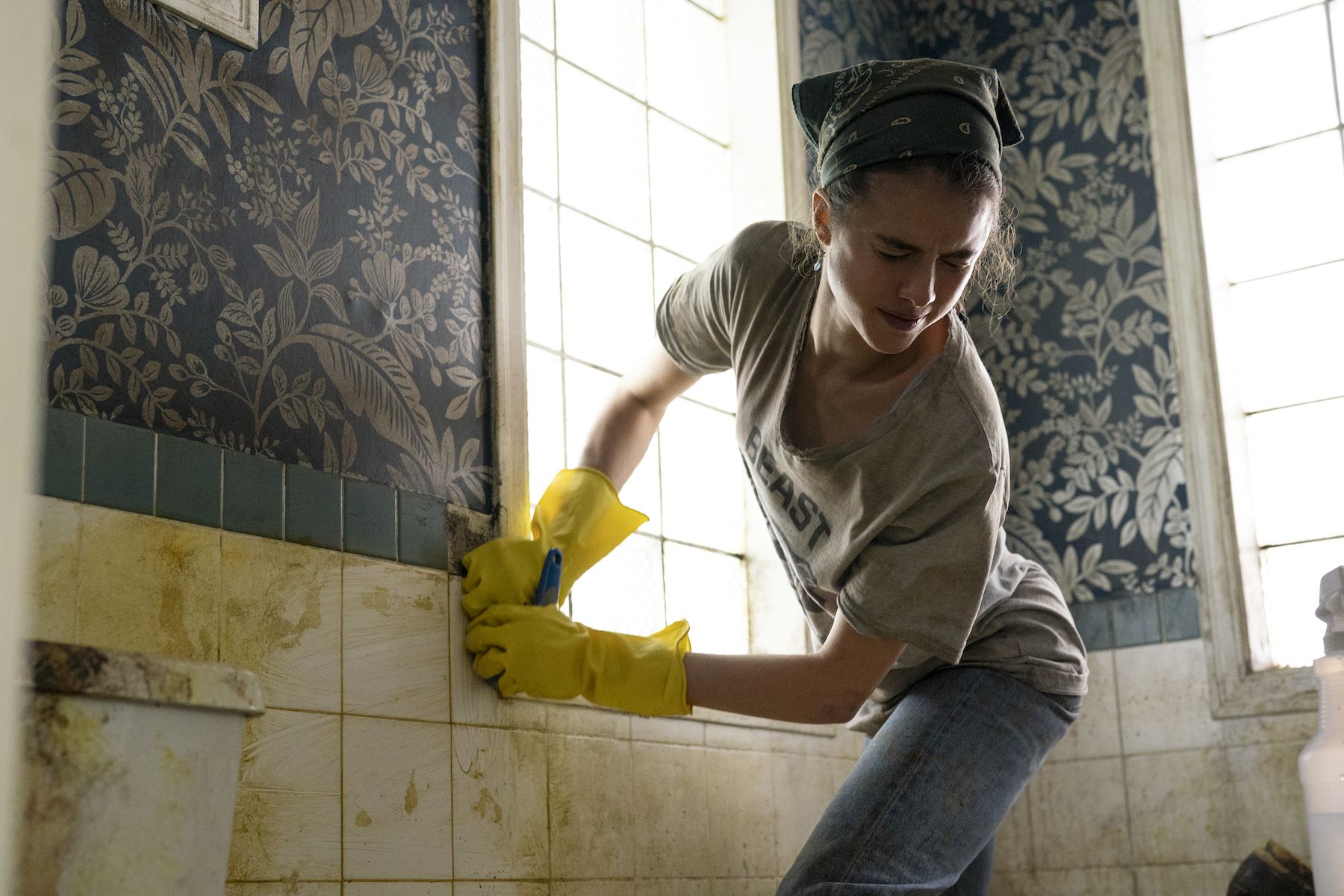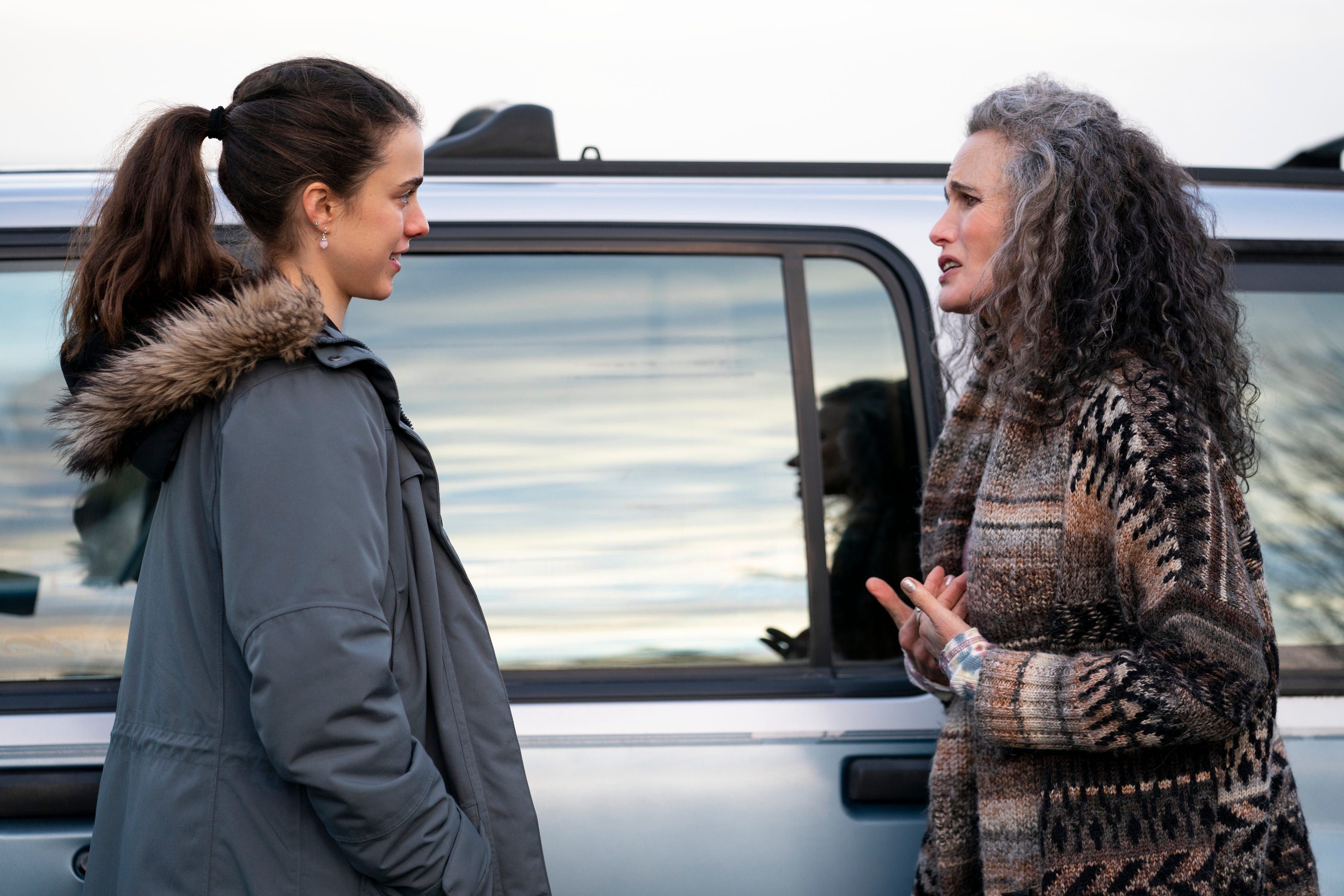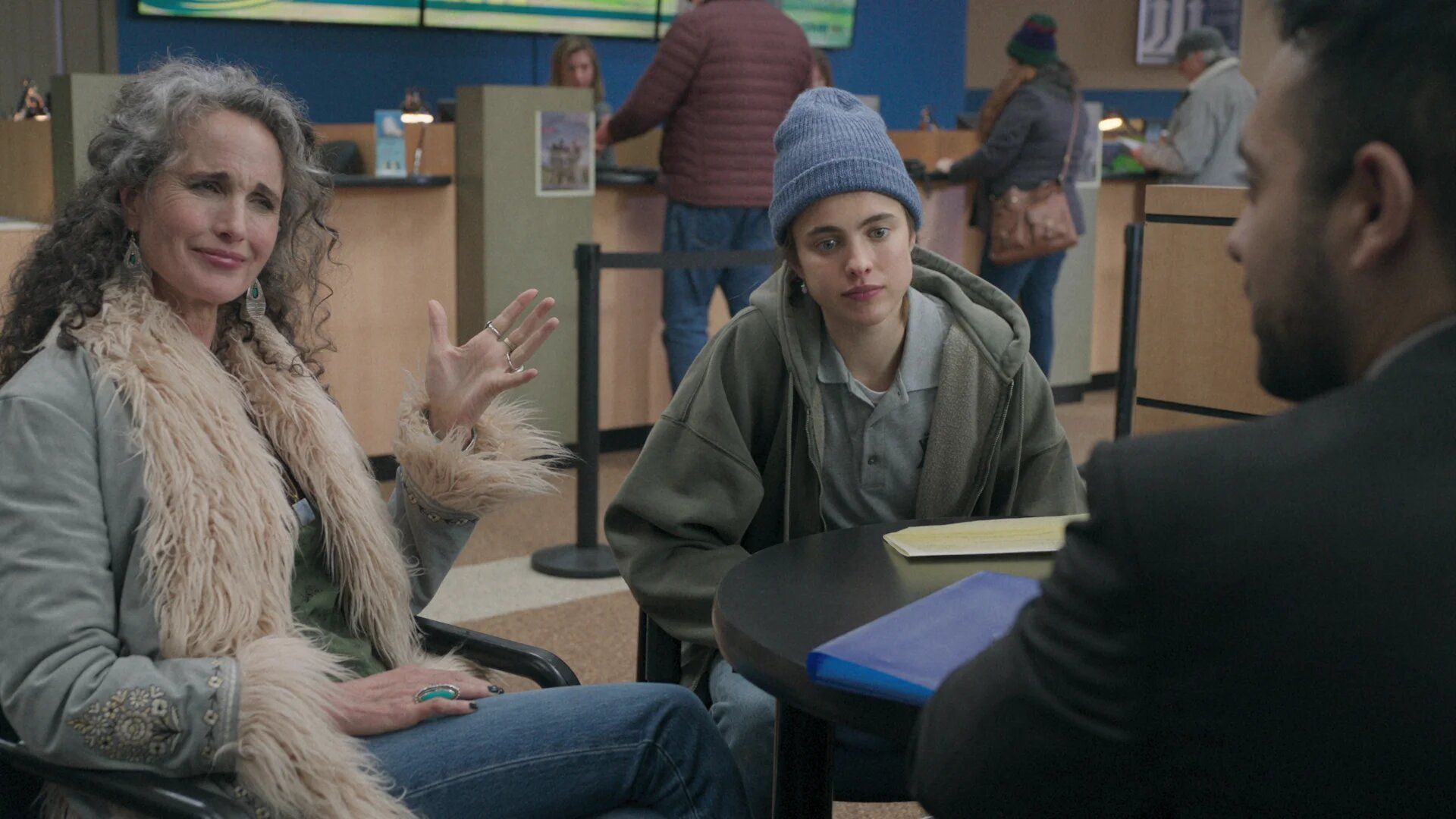Hollywood has no shortage of content about abusive relationships — from Jennifer Lopez in Enough, Julia Roberts in Sleeping with the Enemy, and even the movie based on the play that coined the buzzword Gaslight. Netflix’s Maid brings a new perspective to the genre by tackling that nebulous specter — emotional abuse. Previous iterations of the overcoming-abuse narrative focus on the physical aspect of abuse and what the women in these relationships must do to escape them. But few focus on emotionally abusive relationships that don’t get physical. There is a reason why these kinds of movies and TV shows acquire such strong followings — the stories are relatable, if triggering.
Stories like Maid also serve as cautionary tales by giving examples of red flags and abusive patterns of behavior. Emotional abuse is much more difficult to pin down because as the main character Alex (Margaret Qualley) asks, “What am I going to do, call the police and say he didn’t hit me?” Many of the previous stories within this genre also focus on wealthy women, but few tell stories about poor women with fewer resources and how the system further discriminates against them. Maid tackles all of this and more. The intersection of Alex’s childhood trauma, poverty and her emotionally abusive relationship provides a starkly realistic example of why, for many women in abusive relationships, it feels so hard to leave.
What Is 'Maid' About?
Maid opens on the night Alex Russell takes her daughter Maddy (Rylea Neveah Whittet) and leaves her boyfriend and Maddy’s father, Sean (Nick Robinson). Alex and Maddy spend their first night away from home sleeping in their car, with nowhere to go and only $18 to start their new life. In the morning, Alex first seeks out the support of Social Services, but when asked if her relationship with Sean was abusive, she answers that it wasn’t, because he never hit her. Through Alex’s answers to some of the social worker’s questions, the audience gets some backstory — Alex’s mother, Paula (Andie MacDowell), is unstable, they moved around a lot when she was a child, and her father wasn’t in the picture. The social worker offers to set Alex up with an interview for a cleaning service job, and that's the first good thing that's happened to her since the story began. She reaches out to ask her mother for help, but it soon becomes clear that Paula is a frustratingly unreliable person.
On top of that, when Sean realizes he can’t charm Alex back into their home, he sets about fighting her for full custody and painting Alex as an unfit parent. It is through these actions that Maid begins to reveal Sean’s dark side. While in the domestic violence shelter, Alex makes a friend, Danielle (Aimee Carerro), who opens her eyes to the reality of her situation: “Before they bite, they bark. Before they hit you, they hit near you.” It is only when Alex admits the truth of her situation that she starts to find stability and heal.
Why Does Alex Leave Her Emotionally Abusive Relationship?
Alex’s main reason for leaving her relationship with Sean comes when one of his angry tirades nearly harms Maddy, as he breaks a glass just above her head. While this was unintentional on Sean’s part, the drive to protect her daughter is ultimately what sets Alex free. This is a trope within the escaping-from-abuse genre of storytelling because it is true to life. Often victims of abuse are so caught up in the cycle of love bombing, the brief illusion of change, and then the unraveling back to "normal" with a steady escalation of the abusive behavior, that they become disoriented, exhausted, and more or less addicted to the relationship. Pleasing and keeping the abuser happy and calm becomes a full-time job. There isn’t time or energy to consider anything else. This is often a pattern that starts in childhood, which is definitely true in Alex’s case. Alex’s mother, Paula, is undiagnosed bipolar, and her struggles with impulsivity and her constant quest for a loving partner trapped both of them with abusive men throughout Alex’s childhood and beyond. Much like Alex, Paula left Alex’s father when his anger and physical abuse frightened their daughter. Although she didn't consciously realize it, these incidents normalized these kinds of relationships for Alex. But seeing the abuse spill over onto her daughter immediately pushes Alex out the door, determined never to return. Until she does.
Sean and Alex are linked in a trauma bond in a couple of different ways. First, by the definition of a trauma bond, Sean uses classic abuser tactics to keep Alex on her toes. He can be extremely charming, considerate, romantic, and devoted. When he is a good father, he’s a great father. When he is sober, he is self-aware, deep, and seemingly emotionally intelligent, but this can flip on a dime. Alex tells the story of when she told Sean she was pregnant with Maddy, and it very clearly demonstrates the Jekyll/Hyde quality of his personality. When Alex got pregnant, Sean was gearing up to embark on a cross-country biking trip and Alex was about to leave for college. So when she breaks the news to him, at first he’s loving and supportive because he thinks she’s going to get an abortion. When she tells him she’s going through with the pregnancy, he flips out, screams at her that she’s ruining his life, then proceeds to throw all of her belongings out into the yard in the rain. This was the first time Alex saw that side of him, but unfortunately, it wouldn’t be the last.
This unpredictable behavior keeps the victim on their toes and feeling responsible for their partner’s emotional outbursts. The victim gets put into a position of walking on eggshells and people-pleasing in order to keep the peace. The victim, pushed into a kind of detached or dissociated state of being, becomes so fixated on the happy moments (however few and far between they might be) and restoring them, that they don’t even consider getting themselves out. It works very similarly to addiction, as life just becomes all about the hope of feeling the high. The other way that Alex and Sean share a trauma bond is that they come from very similar backgrounds and families — they share near-identical histories of trauma. Sean uses this at one point to undermine a connection Alex shares with Nate (Raymond Ablack), a very kind and stable man she is starting to develop a relationship with, by implying that Nate could never understand Alex the way he does, that the two of them are broken in the same way. While Alex initially brushes this off, Sean does succeed in planting a seed of doubt, because Alex ends up sabotaging her relationship with Nate shortly after.
These toxic bonds between Alex and Sean play out in many ways throughout the series that feel incredibly realistic. First, while Alex and Sean are broken up, she finds independence, peace and stability, and she works day and night to provide for their daughter. Despite how hard she has it and how much she is up against (including Sean legally attacking her for custody of Maddy), she seems to be happy. She is strong in her resolve, she rebukes Sean’s every attempt at love bombing, she ignores their friends' and her family’s guilt trips, and not-so-subtle hints that she is being stubborn and cold-hearted, and that the “right thing to do” would be to take him back. Sean tries everything. He tries guilt, harassment, taking Maddy away, he tries romantic gestures, moving on with someone else to make Alex jealous, and then he eventually finds a crack in her armor through her mother, Paula.
The Part Alex's Mom Plays
Paula finds herself in her own toxic relationship and Sean finds out that her new husband Basil (Toby Levins) has been renting her house out without her permission and has gambled away all the income from the rent, causing the house to be foreclosed on. Alex, Sean and Paula head off to find Basil together, reminding Sean and Alex how entwined their lives really are. Alex is reminded of how good Sean can be, and he does appear changed — sober, caring, stable. They end up sleeping together at the end of this misadventure, with Sean assuming everything can go back to normal, and Alex more confused than ever. Despite being on his best behavior, the signs of Sean’s toxicity have still been present, just under the surface. One glaring example is how Sean proceeds to develop a close relationship with Alex’s estranged father Hank (Billy Burke), even making him his AA sponsor. This takes place after Alex cuts off contact with him when she recovers a repressed memory of him abusing her mother when she was a child. This total disregard for Alex’s boundaries on both of these men’s accounts truly says it all.
'Maid' Shows the Cycle of Abuse
Once Alex and Maddy do go back to Sean, it isn’t long before the cycle of abuse starts again. First, Alex gets fired from her job and sets about opening her own cleaning business. This leaves her with little-to-no money, and she has to pull Maddy out of daycare, meaning she provides all the care for their daughter. Sean, attempting to prioritize his own sobriety, and with the help of Alex’s estranged father Hank, begins working as a carpenter’s apprentice. Though he wants to quit, he also has to keep his job as a bartender in order to support Alex and Maddy. Soon, Alex needs money to keep her cell phone on. Sean asks why they can’t share his. Alex reminds him her phone number is on all those cleaning flyers she put up, and he belittles her hard work and suggests that her business is a failure before it even starts. Nate gave Alex a car to drive after hers was totaled and let her keep it, even after she disappointed him and broke his heart by rekindling things with Sean. One night Sean gets drunk, flies into a jealous rage, and gives it back to him, effectively stranding Alex and Maddy in their trailer whenever he’s at work. This subtle isolation of Alex from her support system and sabotage of her attempts to attain some kind of autonomy or independence is Sean’s way of ensuring that she can’t leave again. It doesn’t seem premeditated, necessarily, but it certainly does the job.
Alex slowly retreats into herself and falls into a deep depression. Sean spirals further and further into his addiction until one night he gets fired from his bartending job for being drunk, lashes out at Alex, blames her for his misfortune, and throws a glass at the wall near where she is standing. She finds herself back at the starting point of Episode 1, grabbing her daughter and sneaking out in the middle of the night. Except that this time, she knows exactly what to do.
Denise (BJ Harrison), the woman who runs the domestic violence shelter that provides Alex with community, safety, and support both times she leaves Sean, relays the statistic that it takes an average of seven attempts to leave an abusive relationship for good. Witnessing all the systemic pitfalls Alex has to navigate when she first leaves Sean, Maid paints a picture of why getting out is such a feat of strength: poverty, the lack of support for people who come from toxic families, the mazes of red tape to get financial assistance, the PTSD recovery, the gaslighting from friends and relatives, and the lack of understanding just how destructive emotional abuse can be. This is why Alex and Maddy’s happy ending drive to Montana, where Alex will pursue her dream of being a writer, feels so triumphant.





